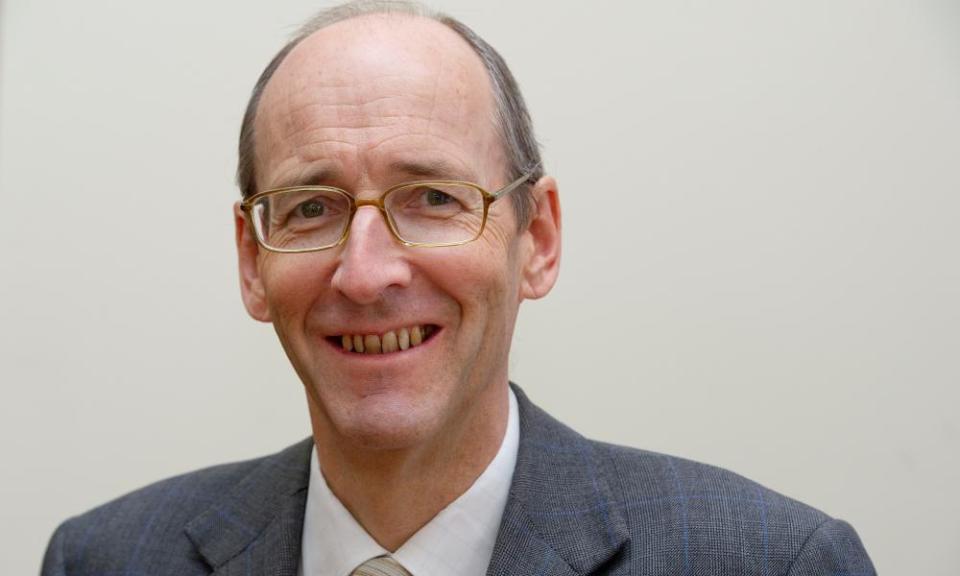Has CMA been put back in its box after Tyrie's exit? That's how it looks

When Andrew Tyrie resigned a couple of weeks ago as chairman of the Competition and Markets Authority (CMA), he cited the “inherent limits” of the role, a curious phrase that suggested there was more to the tale than we were being told.
Sure enough, Sky News reported over the weekend that Tyrie apparently quit after a rebellion from the CMA’s upper ranks over his plans to reform the competition watchdog and seek greater powers to fine companies, ban directors and seek out rip-off corporate behaviour. His exit after only two years in post, it seems, was a coup orchestrated by insiders who reportedly didn’t fancy a role as a more muscular consumer champion.
Competition lawyers and their clients, no doubt, will be delighted if the CMA continues to be a familiar and plodding presence. The watchdog has sometimes bared its teeth against expectations, such as with the proposed Sainsbury’s-Asda merger (which was rightly prevented) but it’s an organisation that moves slowly and seems to enjoy a low public profile.
Tyrie, the former Tory chair of the Treasury select committee, imagined a bigger and bolder role, as encapsulated in last year’s legislative proposals to government. He wrote about “the twin challenges of the growth of the digital economy, and declining public confidence in market competition”. The key change would have put “the economic interests of consumers” at the top of the list of the CMA’s duties.
That agenda has got nowhere so far and the obvious question posed by Tyrie’s exit is whether the entire reform programme will now be quietly dropped. Has the CMA been put back in its box? Is it doomed to continue as a second-class regulator with lesser powers than the likes of Ofcom or the Financial Conduct Authority? That’s the way it looks.
Before we accept this state of affairs, shouldn’t these issues at least be debated? Tyrie’s point about the digital economy was surely correct: the nature of business has changed and competition regulation needs to adapt. The EU, with Margrethe Vestager as its indefatigable competition chief, grasped the point a long time ago, which is why she upsets so many US tech firms.
If we’re relying on the CMA to perform a similar role after Brexit, the departure of a reforming pro-competition, pro-consumer voice ought to sound alarm bells. The business secretary, Alok Sharma, needs to outline in detail want he wants the CMA to be.
Trickle of boycotters could become a flood
Congratulations to the Stop Hate for Profit campaign, which has attracted an impressive list of corporate supporters willing to pull a few advertising dollars from Facebook and other social media platforms. Unilever, Diageo, Coca-Cola, PepsiCo, Verizon, Hershey’s, Levi’s and Starbucks have signed up, which few would have predicted even a week ago.
Facebook has 8m advertisers and annual advertising revenues of $70bn (£57bn), so its empire is probably not about to collapse. The virtual duopoly with Google in online advertising is entrenched. Small businesses, in any case, remain at the heart of the advertising operation.
Yet, it is not impossible to see how a trickle of boycotters could become a flood. An interesting dynamic has been established: if you’re a large consumer-facing brand, you are expected to have a view on whether it is acceptable to advertise on Facebook and other social media platforms. By the same token, you will also have to explain when, and why, it is safe to return.
Note that Unilever’s suspension of ads on Facebook, Instagram and Twitter will run at least until the end of this year. That’s longer than the July-only halt campaigners were seeking. And Diageo and a few others have opted for an indefinite “pause”. This affair could run and run.
One still has to assume Mark Zuckerberg, Facebook’s chief executive, will find an approach that resolves the mini-crisis but, if you are a shareholder, you’d be worried for at least four reasons.
First, Facebook has already added billions to its annual overheads in an attempt to gain greater moderating control of content – and has little to show for it. Second, the company’s tweaks to policies at the end of last week were derided as weak, and only accelerated the boycott. Third, the stakes will get higher as the polarising US presidential election approaches in November.
Fourth, and most importantly, boardroom governance at Facebook is non-existent. The show is all about Zuckerberg and his super-charged voting rights. Even if he continues to flap ineffectually, he can’t be sacked.

 Yahoo Finance
Yahoo Finance 